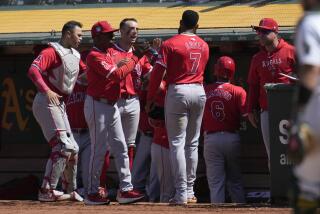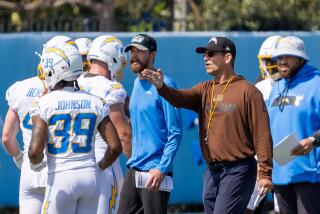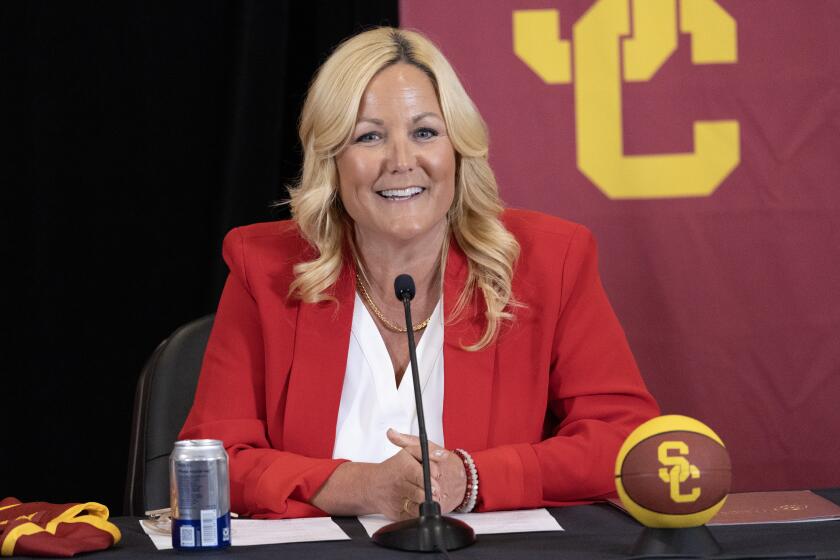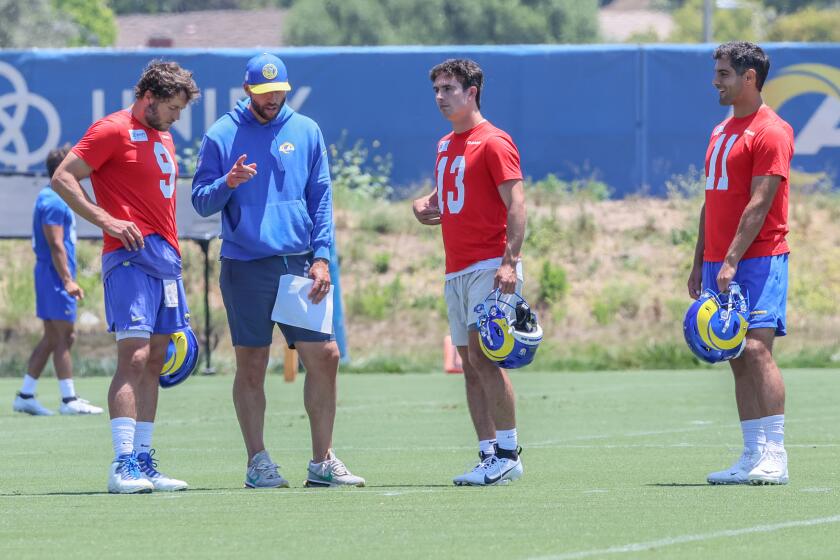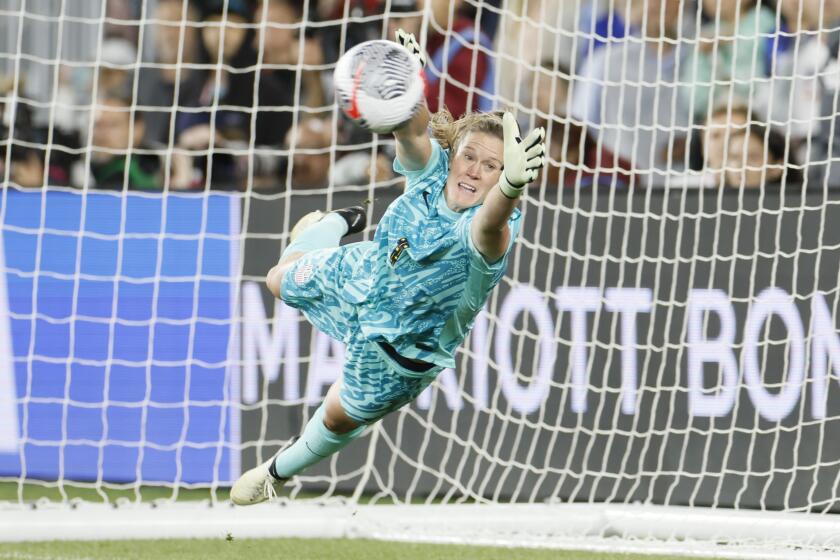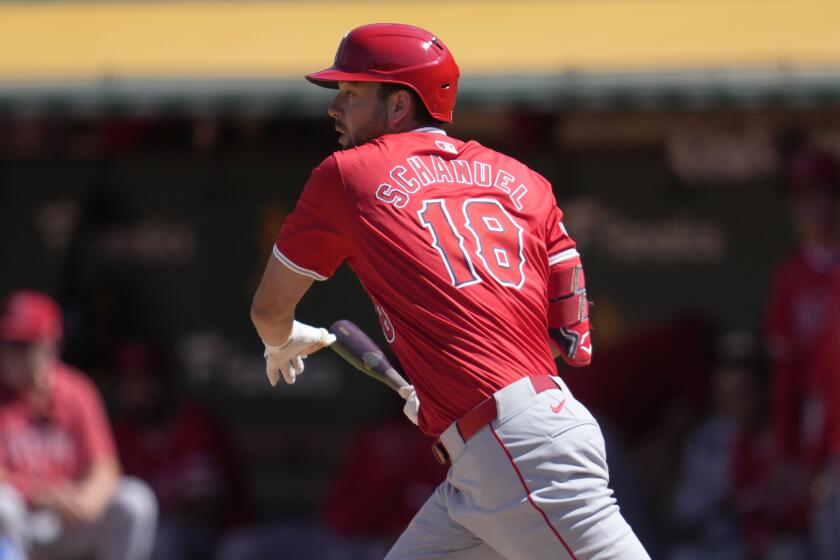Major League Baseball Plays ‘Monopolism’ Game : Sports: Exemption from antitrust laws forces cities to build stadiums and give lucrative deals, author says. League says it ensures team stability and quality of play.
For some, the new crop of stadiums and their cushy deals for team owners exemplify the “monopolism” that pro leagues enjoy, how “too many cities are chasing too few teams,” says Charles Euchner, author of a 1993 book on sports and stadiums called “Playing the Field.”
Baseball’s ability to restrict the supply of franchises and “juice up demand” among cities that want teams puts host cities in the position of either acceding to owners’ demands for new facilities or risk losing the home team to another region, said Euchner, a political science professor at Holy Cross College.
Euchner’s solution: “The courts ought to bust up the league Ma Bell style, let them compete among themselves for cities and players and take away the exclusivity they have over the markets.”
Major league baseball is the only sport to enjoy a formal exemption from antitrust laws. It has been in effect since 1922, when U.S. Supreme Court Justice Oliver Wendell Holmes wrote in a majority opinion that baseball was a sport, not commerce. Ever since, the sport has claimed broad powers to control expansion and movement of teams, powers that have withstood numerous challenges.
Major league baseball defends its antitrust protection by saying that it ensures team stability and the quality of play.
“Unlike other sports, you won’t see baseball owners backing up trucks in the dead of night to move the teams elsewhere. We think that’s important because it’s important to fans. No franchise has been moved since 1971 when the Washington Senators moved to Texas and we’re very proud of that,” baseball spokesman Rich Levin said.
Although the National Basketball Assn., the National Football League and other pro leagues do not share baseball’s blanket antitrust immunity, they nevertheless have a “variety of protections,” Euchner said. A prime example is how the NFL was allowed to merge with its only competitor, the American Football League, in the 1960s.
Another example is how pro leagues enjoy monopolies of television revenues that effectively prevent the formation of competing leagues, said Robert Baade, an economics professor at Lake Forest College.
“It’s a Catch-22 because a competing league couldn’t really buy the players until you get the TV revenues with which to buy the players. And you can’t get the TV revenues until you have the players,” Baade said.
The ways various sports leagues negotiate labor agreements to which all teams must conform is also monopolistic in that it limits demand for players’ services, Baade said. The agreements make each team that claims rights to a player the only consumer of player talent--at least until the players qualify for free agency.
Euchner said basketball, hockey and football have defused antitrust complaints by awarding expansion franchises more rapidly than baseball has.
A pivotal case set for trial Sept. 26 in a Philadelphia federal court could, if the plaintiffs prevail, limit or inhibit baseball’s control over team relocation. The lawsuit was brought by a frustrated St. Petersburg, Fla., group that failed in its effort to buy the San Francisco Giants in 1992 and relocate the team to St. Petersburg.
The purchase was effectively blocked by the league, which forced a sale of the team to another San Francisco-area syndicate headed by Peter Magowan. The St. Petersburg group is seeking $100 million in damages.
Baseball’s antitrust exemption has come under increasing fire in Congress, which could increase with a prolonged players’ strike. Sen. Connie Mack (R-Fla.) has introduced several bills that would do away with baseball’s exemption. His most recent one was killed in the Senate Judiciary Committee in June.
More to Read
Go beyond the scoreboard
Get the latest on L.A.'s teams in the daily Sports Report newsletter.
You may occasionally receive promotional content from the Los Angeles Times.

